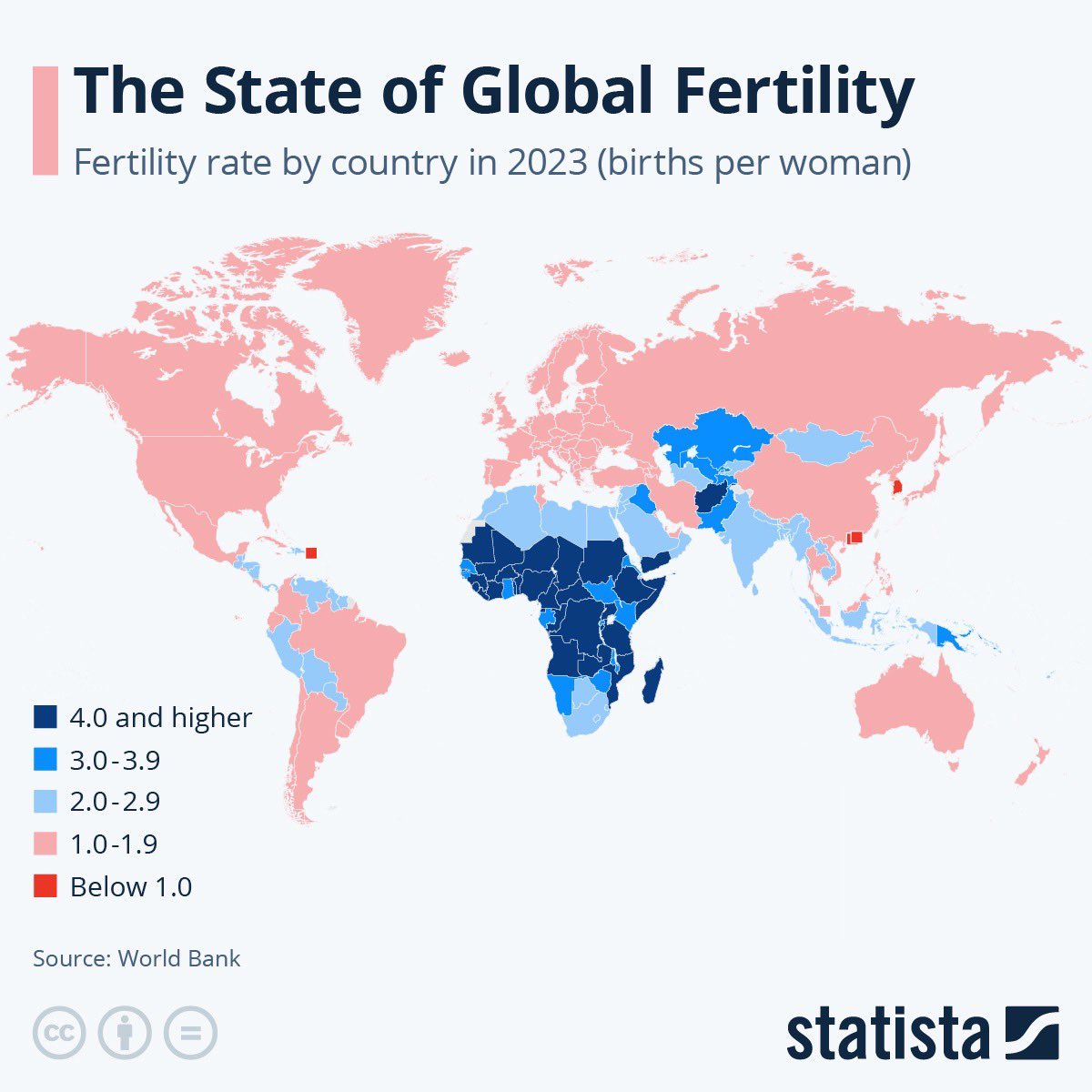Elon Musk has never been shy about challenging humanity’s assumptions. His latest argument is as provocative as it is urgent: the world needs more people, not fewer. In an age where many nations see their populations shrinking, and where cultural narratives often paint humanity as a burden rather than a blessing, Musk is reframing the conversation. The real battle of our time, he says, is between expansionist and extinctionist philosophies. Do we grow, explore, and multiply, or do we allow civilization to wither into irrelevance?
The data is sobering. Fertility rates are plummeting across the developed world. South Korea’s rate sits at 0.81, the lowest in the world, meaning the next generation will be less than half the size of today’s. Japan is at 1.30, Italy at 1.25, Spain at 1.19. Even the United States, long buoyed by higher fertility, has dipped to 1.66, well below the replacement rate of 2.1. Only a handful of countries—Nigeria, Niger, Afghanistan, and Israel among them—are still producing children at levels that ensure generational growth. Everywhere else, civilization is quietly contracting.
What Musk highlights is not just a demographic trend but a civilizational choice. If humanity internalizes the idea that people are a plague, then the future becomes a story of managed decline. But if we see ourselves as builders, explorers, and creators, then the future demands growth—not just in technology, but in the number of people who will dream, invent, and carry civilization forward. Every child represents not just a life but a bundle of potential ideas, discoveries, and relationships. A world with fewer children is a world with fewer possibilities.
Consider what expansionist thinking could unlock. A growing human population drives demand for new inventions, new frontiers, and new ways of living. It encourages bold investments in education, healthcare, housing, and exploration. It provides the talent base for industries we haven’t even imagined yet. It fuels the kind of collective ambition necessary to establish a human presence beyond Earth—on the Moon, on Mars, and perhaps one day among the stars. Musk’s insistence that we need more people is ultimately a call to believe in ourselves. Humanity’s destiny is not to shrink into irrelevance but to stretch outward, across continents, across planets, across the galaxy.
The irony is that many of the same societies with collapsing fertility are also the ones producing the breakthroughs that could sustain larger populations: renewable energy systems, artificial intelligence, robotics, advanced medicine, and space exploration. In other words, we are building the tools for an expansionist future at the very moment when our own numbers are dwindling. Without people to use them, guide them, and build upon them, those tools may become relics of a civilization that lost confidence in itself.
This is why Musk’s call resonates beyond economics or population charts. It’s a philosophical reset. To embrace an expansionist mindset is to embrace optimism—the belief that more people mean more minds, more solutions, more art, more beauty, more life. It means trusting that our greatest resource is not what we extract from the Earth but what we cultivate in each other. Civilization has always advanced by growing. The next leap forward—into new cities, new ecosystems, new worlds—requires us to continue that tradition.
The story of the future will be written by those who choose expansion over extinction. More humans mean more dreamers, more builders, more explorers, and more guardians of consciousness itself. Elon Musk is right: we need more people, not fewer. The future quite literally depends on it.
Read more on related perspectives:
- Global population decline sparks debate about the future of civilization
- Elon Musk warns of population collapse as humanity’s greatest threat


